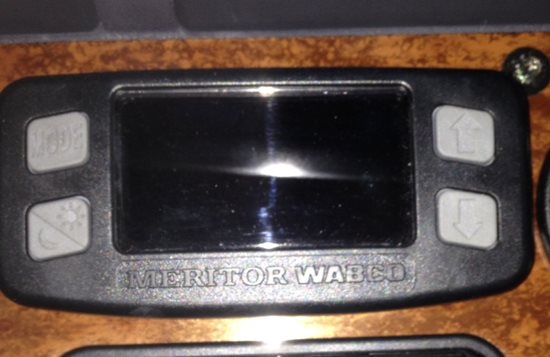
Telematics... Sure we've all heard of this, but do we really know what this is or actually means to us as truckers? The definition of telematics according to Wikipedia is "Telematics is an interdisciplinary field encompassing telecommunications, vehicular technologies, road transportation, road safety, electrical engineering (sensors, instrumentation, wireless communications, etc.), computer science (multimedia, internet, etc.)." Ok that didn't really tell us as much as I think it should have, too many big words. Simplified, as I understand it Telematics, as we truckers would be using it, is the ability for the truck to "talk" to you through e-mail, text, a visual indicator or maybe even an automated phone call.
That is way to simplified of a definition but it about covers it. Vehicle telematics are the systems we will be discussing here. Shall we start with the simplest item that most, if not all, of us have or do use regularly. I'm talking about a Global Positioning System (GPS), probably the most used piece of telematics. I know what you are saying, this is not part of the truck, but once installed it sorta is. And it does "talk" to you visually if not audibly also. Some GPS"s can be connected to an outside receiver that will allow someone else to "track" your movements in real time, such as Omnitracs or Peoplenet. If the units are connected to the Engine Control Module (ECM) of the semi truck, the receiving station can, if the options have been turned on, read the ECM as you drive. There is a lot of information going thru the ECM at all times.
With the simplest out of the way we can move on to the more technical and under lying uses for telematics. Wireless safety communications is the ability for the vehicle to communicate thru sensors at fixed locations along a vehicles route about fixed hazards, sending and receiving messages to and from others headed toward that hazard. Adaptive cruise control and other vehicle control aids could be connected together with other vehicles to run in convoys, saving fuel and road space. Lane Departure Warning Systems (LDWS) is another system under the telematics umbrella in the vehicle control area that is currently in use.
What is in store for the future of vehicle telematics? Tire Pressure Monitoring Systems (TMPS) are in the works for sure. Wouldn’t it be nice to know the tire pressure of every tire at all times, and if one is low you would get a notification, a light on the dash, a text, an e-mail or all of the above? This would greatly reduce the number of "gators" on the highway. Think about how much it would save you or your carrier, fewer blowouts and road service calls. Time saved for you the driver.
As technology advances, and it's going faster than one can imagine, we will be adding more systems to the things telematics will monitor and report to you. Some things you don't need to know about until there is a problem. Other items that need monitored are why you have gauges and warning lights. Currently Detroit has a telematics system called Virtual Technician, through it the trucks ECM will send a message to the Customer Service Center when a fault is generated and the experts will analyze performance data to determine if you can keep on trucking or you need to get to a shop. If the fault is serious enough you could get a phone call, if not you may just get an e-mail with information about where to stop and who has the suspect part to get you back on the road faster.
If needed the CSC will alert the shop about your problem, that you are headed their way and a pre-diagnosis. Most Freightliner trucks built after April 2011 with EPA 2010 Detroit engines have the Virtual Technician hardware installed. If this is something that interests you there are retrofit kits available for EPA 2010 Detroit engine equipped trucks. There are also all makes kits for other truck brands.
| Example of Virtual Technician Message - Took away the worry of a code. |
| Your check engine light is on because the DEF is below normal operating temperature. No service is needed. The light should go out after 2 hours of normal operation. |